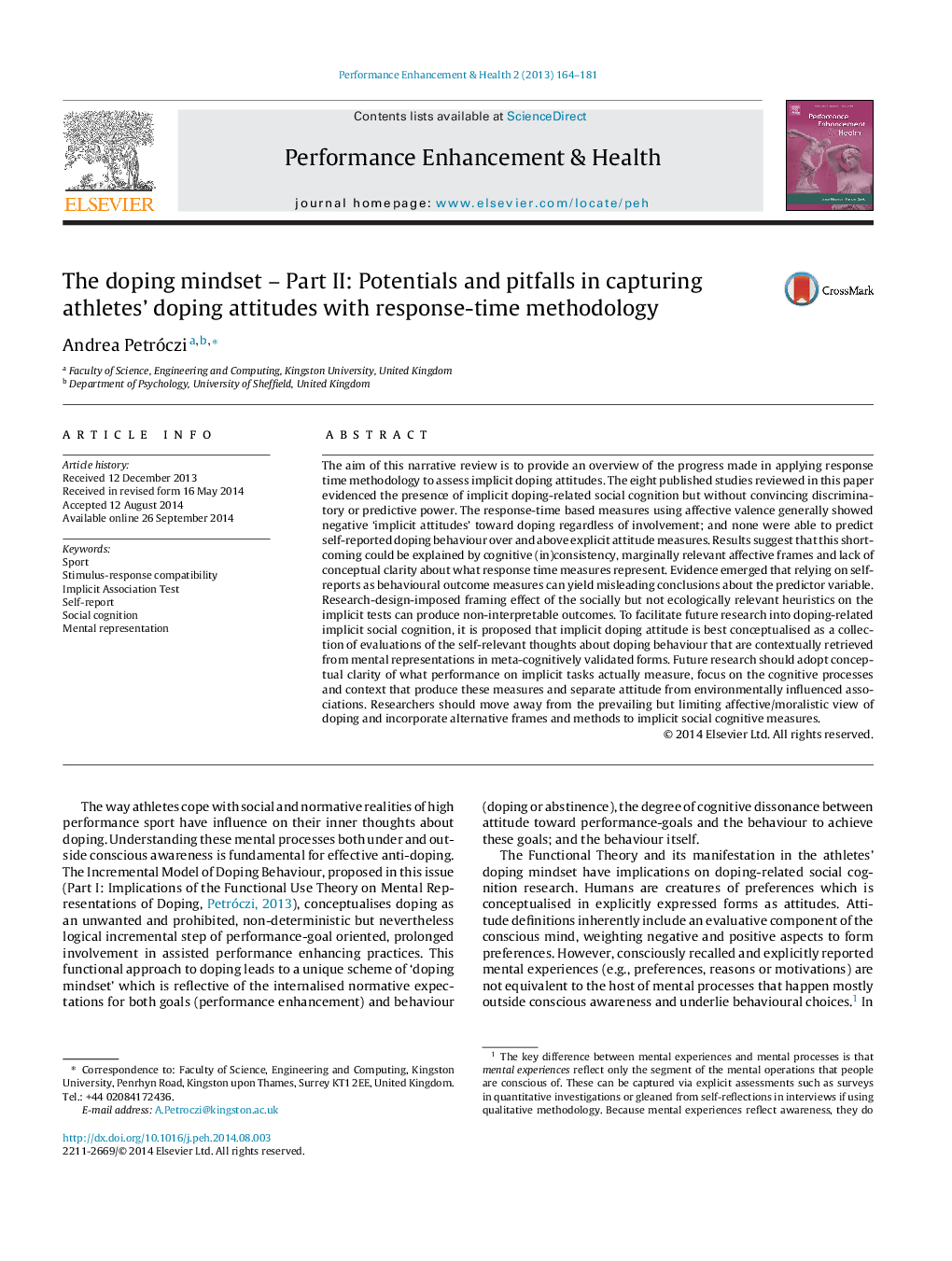| کد مقاله | کد نشریه | سال انتشار | مقاله انگلیسی | نسخه تمام متن |
|---|---|---|---|---|
| 889599 | 913957 | 2013 | 18 صفحه PDF | دانلود رایگان |
• Narrative review of eight studies with implicit social cognition measures on doping.
• Studies showed negative affective attitudes toward doping regardless of use.
• Implicit assessments exhibited poor predictive power for self-reported doping.
• Self-reports as behavioural outcomes can lead to misleading conclusions.
• Lack of conceptual clarity and the moralistic view limit implicit doping research.
The aim of this narrative review is to provide an overview of the progress made in applying response time methodology to assess implicit doping attitudes. The eight published studies reviewed in this paper evidenced the presence of implicit doping-related social cognition but without convincing discriminatory or predictive power. The response-time based measures using affective valence generally showed negative ‘implicit attitudes’ toward doping regardless of involvement; and none were able to predict self-reported doping behaviour over and above explicit attitude measures. Results suggest that this shortcoming could be explained by cognitive (in)consistency, marginally relevant affective frames and lack of conceptual clarity about what response time measures represent. Evidence emerged that relying on self-reports as behavioural outcome measures can yield misleading conclusions about the predictor variable. Research-design-imposed framing effect of the socially but not ecologically relevant heuristics on the implicit tests can produce non-interpretable outcomes. To facilitate future research into doping-related implicit social cognition, it is proposed that implicit doping attitude is best conceptualised as a collection of evaluations of the self-relevant thoughts about doping behaviour that are contextually retrieved from mental representations in meta-cognitively validated forms. Future research should adopt conceptual clarity of what performance on implicit tasks actually measure, focus on the cognitive processes and context that produce these measures and separate attitude from environmentally influenced associations. Researchers should move away from the prevailing but limiting affective/moralistic view of doping and incorporate alternative frames and methods to implicit social cognitive measures.
Journal: Performance Enhancement & Health - Volume 2, Issue 4, December 2013, Pages 164–181
